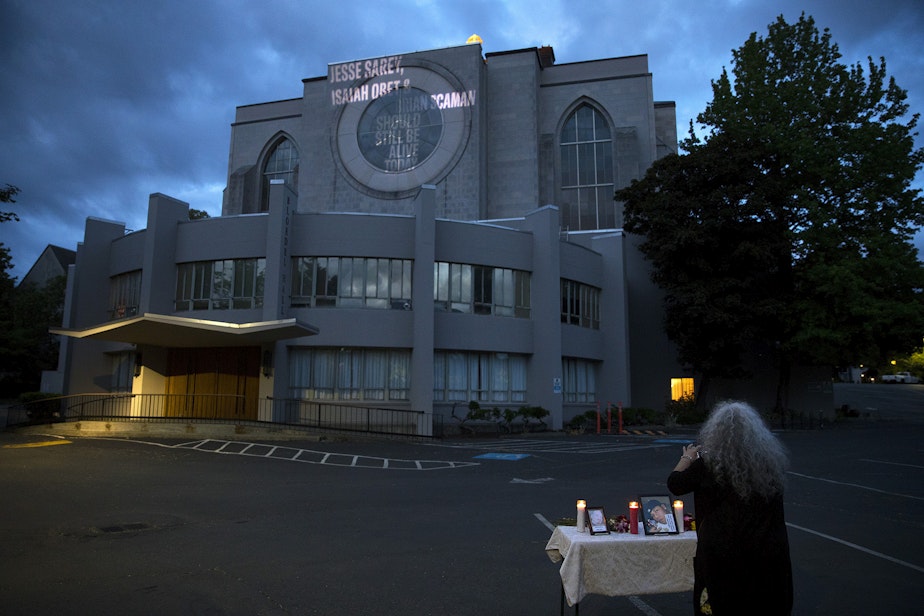For murder trial of Auburn police officer, lawyers probe jurors' views on deadly force

King County Superior Court officials have called an unusually large jury pool to consider what could be a significant case involving police use of deadly force — the murder trial of Auburn police officer Jeffrey Nelson.
Court spokesperson Amy Roe said between the length of the trial and the controversial focus, the court had to nearly triple the normal jury pool and call more than 300 people. She said 80 to 120 jurors are called for a typical criminal trial.
Nelson is charged with second-degree murder and first-degree assault. He’s the first police officer to be charged under I-940. The new voter-approved standard removes the requirement to prove that a police officer acted with “malice,” and instead says prosecutors must show Nelson’s use of force was not reasonable or necessary when he shot and killed Jesse Sarey in 2019.
This week at the Maleng Regional Justice Center in Kent, lawyers are bringing potential jurors into the courtroom for questioning one at a time, going into detail about their views of law enforcement, recent Black Lives Matter protests and high-profile cases of police using deadly force.
On Thursday morning one potential juror said she has family members in law enforcement, and police need to defend themselves in certain situations. But she also said she believes the Seattle police officer who shot and killed First Nations woodcarver John T. Williams in 2010 could have tried pepper spray or other less-lethal means before resorting to deadly force.
She said if someone were carrying a machete, “give them what they’ve got coming,” but “I don’t think [Williams’] little knife could have hurt anyone,” the juror said, adding, “I don’t think he deserved to lose his life.”
Sponsored
The juror indicated she had similar concerns over Sarey’s death from what she knew of the encounter, but she said she could put bias aside and “opinions can change.”
Another juror told attorneys he has starkly negative views of police, who he said he associates with “white supremacy” and “terrorizing marginalized communities.” He noted on a questionnaire that he agreed with the slogan used by some protesters in 2020, “ACAB” for “All Cops Are Bastards.”
The juror, who is white, said if selected he would try to put his beliefs aside, but he also told the defense attorney who questioned him, “Your job is the find the right jury, and that may not be me.”
Ultimately Judge Nicole Gaines Phelps granted a motion from Nelson’s defense team to strike that juror for bias, noting that he specifically cited a negative view of Auburn police as well.
Lawyers said that other prospective jurors have voiced strong support for law enforcement. Ultimately attorneys will narrow the pool to 12 jurors and at least four alternates. The trial is expected to last into July.



